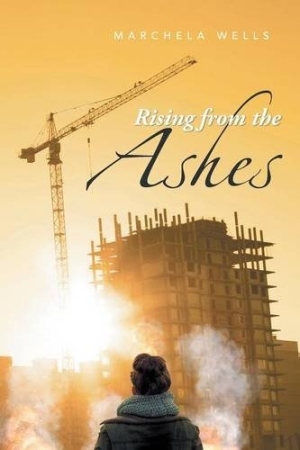Rising from the Ashes
A young woman finds love and possible redemption in this novel about survival and recovery.
Marchela Wells’s Rising from the Ashes is a romance with elements of a classical thriller that relates the tragedies of a young woman’s life.
Christina “Tina” McIntyre has had more than her share of troubles. She survived a brutal rape at sixteen, and both of her parents were killed in a plane crash several years later. Her story includes an unusual mix of romance and elements of a “shoot-em-up” thriller, including bombings, car chases, and gun battles.
The book begins with Tina’s assault. For the next seventeen years, she struggles with trust and the effects of trauma, believing she will never be able to find love. At the age of thirty-three—an age with clear Christian symbolism—she rises again, though, and does find love with Cliff, reasserting herself as Christina.
Romance elements round out Tina’s relationship with Cliff, including some explicit sex scenes. Unfortunately, her past returns to haunt her and she is forced to face down her rapist again. Suspension of disbelief is necessary as genres collide, but the pacing of the story provokes high interest in what will happen next.
The book’s rape scene is brutal, with sharp dialogue and believable violence that effectively convey Tina’s pain and fear. As the story progresses, however, both the narration and the dialogue take on a stilted quality, giving the story a “this happened, then that happened” feel, as when a villain declares “the money appears to be there. Now, for the other part of our bargain, we’re going to have to drive over to my room.”
Alongside the explicit sex and graphic rape, there are moments of expressed Christian faith, particularly from Cliff. The discussion Christina and Cliff have about remaining a virgin until marriage highlights the agony of her rape. Such elements work, to an extent, though the intermingling of religious discussions occasionally feels very moralistic and almost pedantic. Religion is used to help Christina move past her trauma, but as a plot device, this is not always believable.
The book makes ample use of italics, but they appear at odd moments in the action of the story, and their function is not entirely clear. The back cover copy is a note to the reader from the author, conveying a perhaps unnecessary note of apology for the graphic nature of the rape scene.
Romantic fiction readers will be strongly drawn to appreciate the relationship between Cliff and Christina, who face sometimes incredible challenges.
Reviewed by
Lynn Evarts
Disclosure: This article is not an endorsement, but a review. The publisher of this book provided free copies of the book and paid a small fee to have their book reviewed by a professional reviewer. Foreword Reviews and Clarion Reviews make no guarantee that the publisher will receive a positive review. Foreword Magazine, Inc. is disclosing this in accordance with the Federal Trade Commission’s 16 CFR, Part 255.

